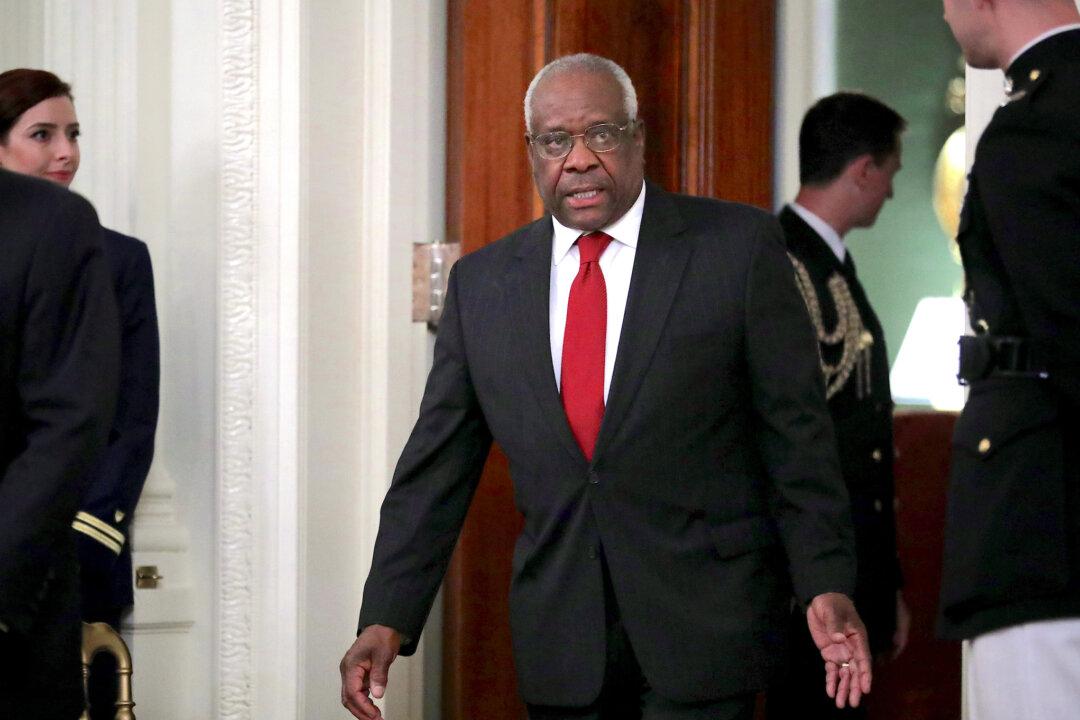Supreme Court Justice Clarence Thomas was at one time so concerned about his finances that he quietly pushed for a salary increase and for justices to be allowed to accept speaking fees, according to a new report that was promptly criticized by Justice Thomas’s allies.
The article, which appears to shed some light on Justice Thomas’s financial situation before he gained wealthy benefactors, comes as Senate Democrats push legislation that would impose a code of conduct on the Supreme Court, a bill Republicans say is unconstitutional.





